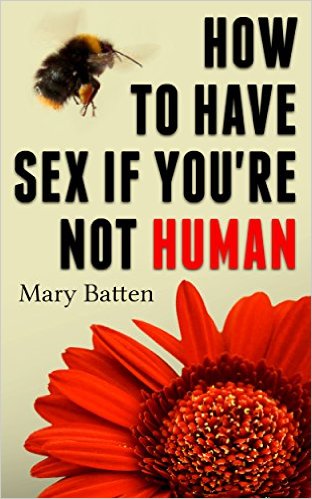Today is the 37th anniversary of the Supreme Court's Roe v Wade decision, the most important decision for women's rights since the 19th Amendment extended voting rights to women in 1920. Yes, we've come a long way since then, but we can never take reproductive choice for granted. There is still a strong anti-woman faction in the U.S. that is trying to turn back the clock and take away our right to control our own bodies. The anti-choice movement is the American equivalent of the Taliban.
As I wrote in my book, SEXUAL STRATEGIES: HOW FEMALES CHOOSE THEIR MATES, "Although we now live in the 21st century, superstitions, practices, and attitudes from a prescientific era are still with us. Even in technologically sophisticated countries like the United States, women's reproductive autonomy is threatened by fanatical groups that would turn back the clock on contraception, ban abortion and, in effect, make women's bodies property of the state. . . . In line with male subversion strategies in other species, the antiabortion movement is driven largely by fundmentalist religious groups led predominantly by men. . . . In today's world, opposition to reproductive choice is the human equivalent of male insects' copulatory plugs and toxic sperm. . . . Among humans, females' evolutionary right to choose their mates extends to the right to choose whether to give birth."
We have to continue being vigilant and support pro-choice candidates. The current right-wing leaning of the Roberts Supreme Court and the continuing anti-choice assault on reproductive choice is a very real threat to our most intimate right.
In her 1981 book, THE WOMAN THAT NEVER EVOLVED (reprinted in 1999 with a new preface), anthropologist Sarah Blaffer Hrdy ended on this note:
"The female with 'equal rights' never evolved; she was invented, and fought for consciously with intelligence, stubbornness, and courage. But the advances made by feminists rest on a precarious framework built upon a unique foundation of historical conditions, values, economic opportunities, heroism on the part of women who fought for suffrage, and perhaps especially technological developments which led to birth control and labor-saving devices and hence minimized physical differences between the sexes. This structure is fragile. Should it collapse, it is far from certain that the scaffolding needed to surmount oppressive natural and cultural barriers could ever be pieced together again.
To assume that women today are regaining a natural preeminence, or reinstating some original social equality, belittles the real accomplishment and underestimates its fragility. However well-intentioned, these myths pose grave dangers to the actual progress of women's rights. They devalue the unique advances made by women in the last few hundred years and tempt us to a false security. Injustices remain; there are abundant new problems; yet, never before -- not in seventy million years -- have females been so nearly free to pursue their own destinies. But it won't be easy."
Friday, January 22, 2010
Subscribe to:
Posts (Atom)






